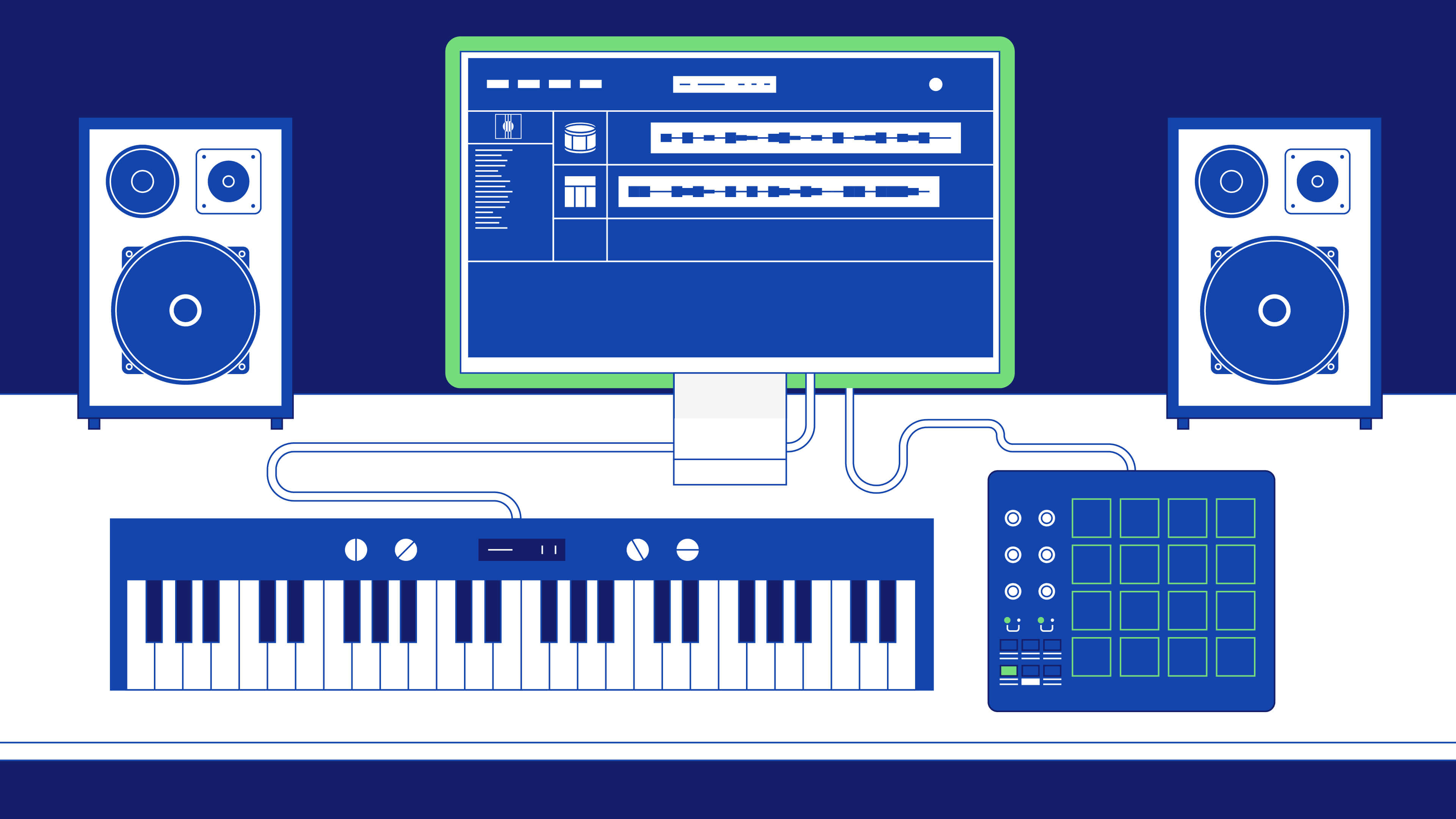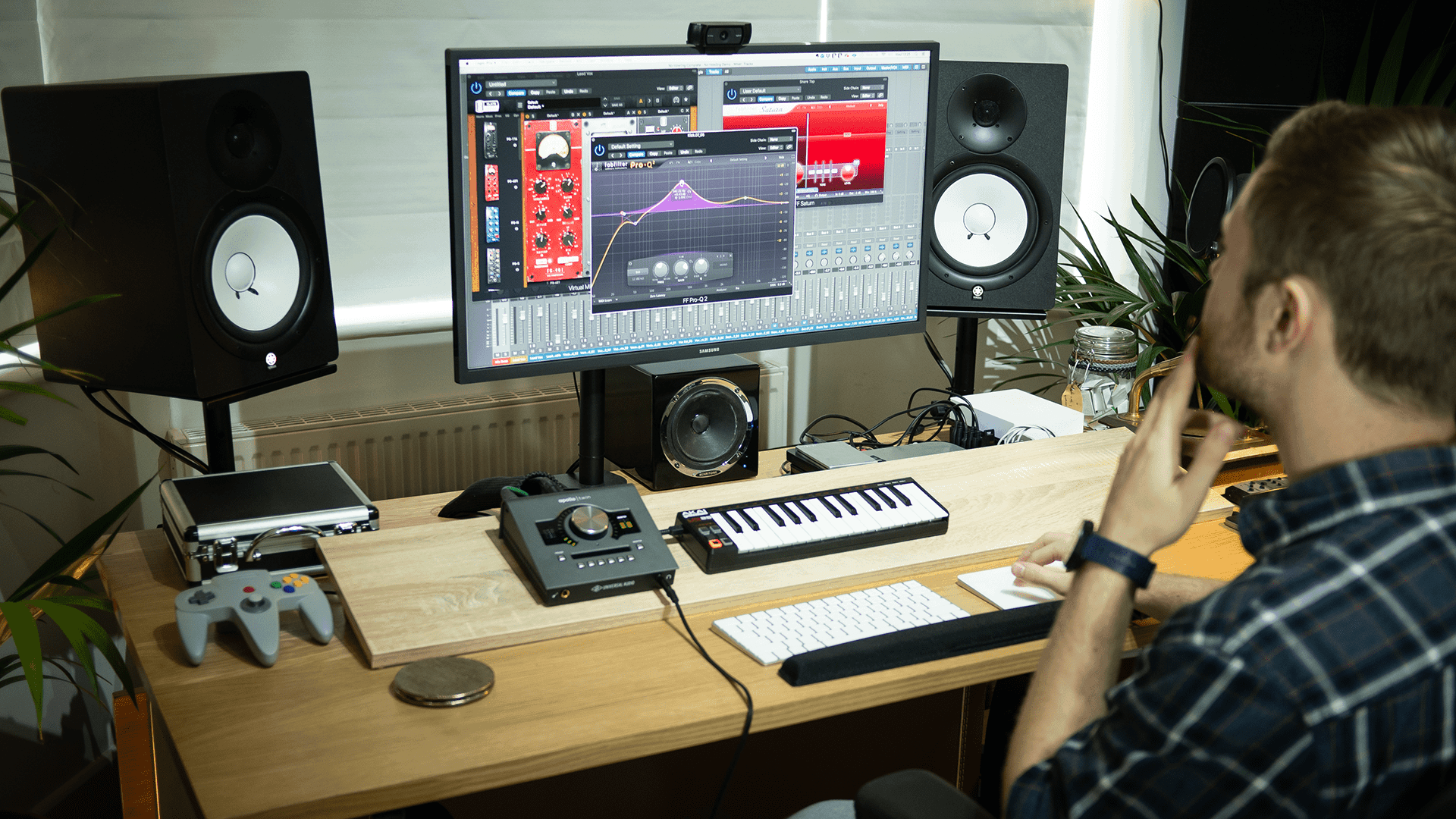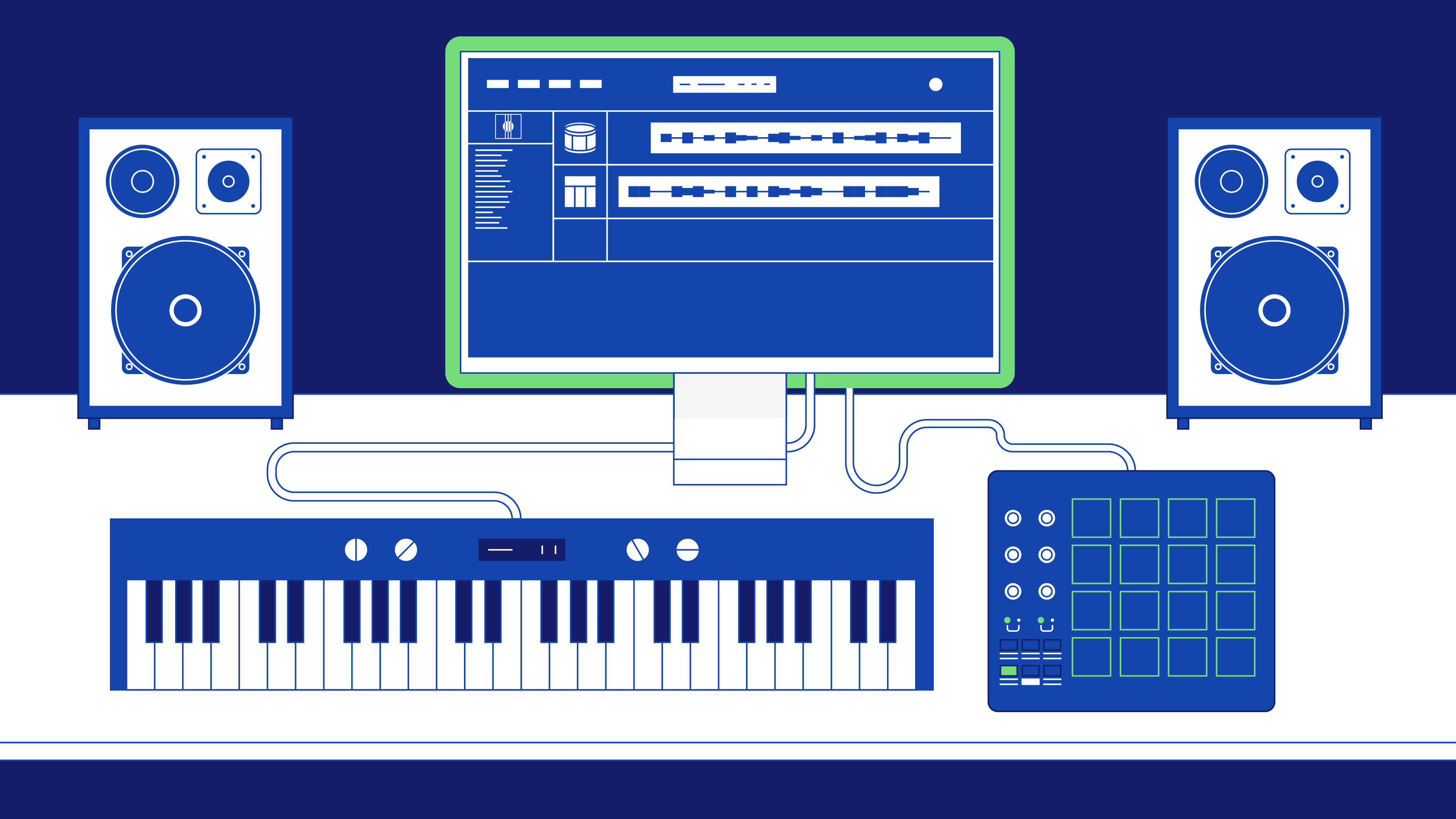Unlocking the Power of Music Production: A Digital Audio Workstation Guide for Music Workshops
Are you a music lover looking to enhance your skills and knowledge of music production? Then this Digital Audio Workstation Guide for Music Workshops is for you! Whether you’re a seasoned musician or just starting, understanding the capabilities of a DAW is crucial for success. This guide, tailored specifically for music workshops, will provide you with practical advice and assistance to navigate the world of digital audio workstations, helping you to create the music you’ve always dreamed of. Remember to check out theautonomics.com for additional resources.
Explore
- 1 Choosing the Right Digital Audio Workstation for Your Workshop
- 2 Mastering Essential Digital Audio Workstation Techniques
- 3 Utilizing Effects and Plugins in Your Digital Audio Workstation
- 4 Workflow Optimization and Project Management
- 5 Beyond the Basics: Advanced Digital Audio Workstation Techniques
- 6 The Importance of a Digital Audio Workstation Guide for Music Workshops
Choosing the Right Digital Audio Workstation for Your Workshop
Selecting the appropriate Digital Audio Workstation Guide for Music Workshops is a crucial first step. Different DAWs cater to varying needs and skill levels. Consider factors like your budget, the specific software features required for your workshop curriculum, and the overall user experience. Some popular choices include Ableton Live, Logic Pro X, Pro Tools, Cubase, and FL Studio. Each offers a unique workflow and set of tools, so researching their strengths and weaknesses is essential before making a decision. A well-chosen DAW will significantly impact the effectiveness and enjoyment of your music workshop.
Understanding DAW Interfaces
Navigating the interface of your chosen DAW is fundamental to your success. A Digital Audio Workstation Guide for Music Workshops should always prioritize clear explanations of the interface. Familiarize yourself with the arrangement of tracks, mixer controls, effects processors, and MIDI editor. Many DAWs offer customizable interfaces, allowing you to tailor the workspace to your preferences and the specific needs of your workshop. Mastering the interface is the foundation upon which all your music production skills will be built.
Mastering Essential Digital Audio Workstation Techniques
Once you’ve chosen your DAW and understand its interface, it’s time to delve into essential techniques. A comprehensive Digital Audio Workstation Guide for Music Workshops should cover these core elements thoroughly. This includes recording audio, editing audio (cutting, pasting, time-stretching, pitch-shifting), mixing audio (EQ, compression, reverb, delay), mastering audio (loudness maximization, dynamic range control), and working with MIDI (programming melodies, rhythms, and chords). These skills form the backbone of effective music production.
Recording Techniques with Your DAW
High-quality recordings are the cornerstone of any successful music project. Your Digital Audio Workstation Guide for Music Workshops needs to address microphone techniques, input gain staging, and monitoring strategies. Understanding how to minimize noise and optimize audio levels during recording is vital for a professional sound. This section should also explore different recording techniques, such as close miking, room miking, and ambient recording, and how to effectively use these techniques to capture the best possible sounds for your music.
Advanced Editing and Mixing Techniques

Beyond the basics of cutting and pasting, advanced editing techniques are crucial for creating polished and professional-sounding tracks. A detailed Digital Audio Workstation Guide for Music Workshops should cover techniques like audio restoration, loop manipulation, automation, and using plugins effectively. Similarly, mastering mixing involves understanding the interplay of EQ, compression, reverb, and delay to shape the overall tone and balance of your mix. This section could also include advanced mixing techniques such as parallel processing and sidechaining.
Utilizing Effects and Plugins in Your Digital Audio Workstation
Effects and plugins dramatically expand the sonic possibilities of your DAW. A helpful Digital Audio Workstation Guide for Music Workshops will provide an overview of various effect types, including reverb, delay, chorus, flanger, phaser, distortion, and EQ. Furthermore, understanding how to use plugins effectively is crucial for achieving a professional sound. This section should also address different plugin formats (VST, AU, AAX) and how to manage them within your DAW. Experimentation is key to discovering the unique capabilities of various effects.
MIDI Sequencing and Virtual Instruments
For many music producers, MIDI sequencing is an essential part of the creative process. A thorough Digital Audio Workstation Guide for Music Workshops should cover the fundamentals of MIDI sequencing, including programming melodies, rhythms, and chords using virtual instruments. Exploring the capabilities of different virtual instruments, from synthesizers to samplers, is a crucial part of expanding your musical palette. This section should also include information on MIDI controllers and how to use them effectively with your DAW.

Workflow Optimization and Project Management
Efficient workflow is essential for maximizing productivity in music production. A practical Digital Audio Workstation Guide for Music Workshops should offer strategies for organizing projects, naming files effectively, and creating a streamlined workflow. This includes using templates, mastering keyboard shortcuts, and employing effective project management techniques. A well-organized workspace leads to a smoother and more enjoyable creative process.
Troubleshooting Common DAW Issues
Even experienced producers encounter technical challenges. A valuable Digital Audio Workstation Guide for Music Workshops should provide solutions to common problems, such as audio latency, buffer underruns, plugin conflicts, and file corruption. Knowing how to troubleshoot these issues will save you valuable time and frustration during your music production process. This section should also cover the importance of regular backups and data management.
Beyond the Basics: Advanced Digital Audio Workstation Techniques

Once you’ve mastered the fundamentals, it’s time to explore more advanced techniques. A superior Digital Audio Workstation Guide for Music Workshops should include sections on sound design, audio manipulation, advanced mixing and mastering techniques, and integrating your DAW with other music software. This could include detailed discussions on spectral editing, granular synthesis, and advanced automation techniques.
Collaboration and Sharing Your Music
Collaboration is an integral part of the music industry. A helpful Digital Audio Workstation Guide for Music Workshops should guide users on how to collaborate effectively on projects using their DAW, including techniques for sharing files and working with other musicians remotely. This section could also include information on exporting audio files in various formats and preparing your music for online distribution.
The Importance of a Digital Audio Workstation Guide for Music Workshops
A well-structured Digital Audio Workstation Guide for Music Workshops is invaluable for both instructors and students. For instructors, it provides a structured curriculum, ensuring consistent teaching and learning. For students, it serves as a comprehensive reference, enabling self-paced learning and skill development. A good guide streamlines the learning process, making it more efficient and effective. The right Digital Audio Workstation Guide for Music Workshops can be the key to unlocking your musical potential. This guide provides a framework for a successful learning experience, enabling participants to harness the power of DAWs to create impactful music. A clear and concise Digital Audio Workstation Guide for Music Workshops is a crucial resource for any music workshop. The benefits of a well-crafted Digital Audio Workstation Guide for Music Workshops are far-reaching, impacting both the quality of instruction and the overall success of the workshop participants. A properly designed Digital Audio Workstation Guide for Music Workshops should be considered essential for any music education program. This guide will help you to confidently navigate the software and unlock your creative potential. Investing in a comprehensive Digital Audio Workstation Guide for Music Workshops is an investment in your musical future. Remember, a good Digital Audio Workstation Guide for Music Workshops is more than just a manual; it’s a roadmap to your musical journey.
Final Thoughts: Mastering Your Musical Journey
This Digital Audio Workstation Guide for Music Workshops has provided a foundational understanding of DAWs and their applications in a workshop setting. By mastering the techniques outlined here, you can significantly enhance your music production skills and create more impactful and professional-sounding music. Remember that continuous learning and practice are crucial for improvement. Embrace the creative process, experiment with different sounds and techniques, and most importantly, have fun! Your musical journey is just beginning.
